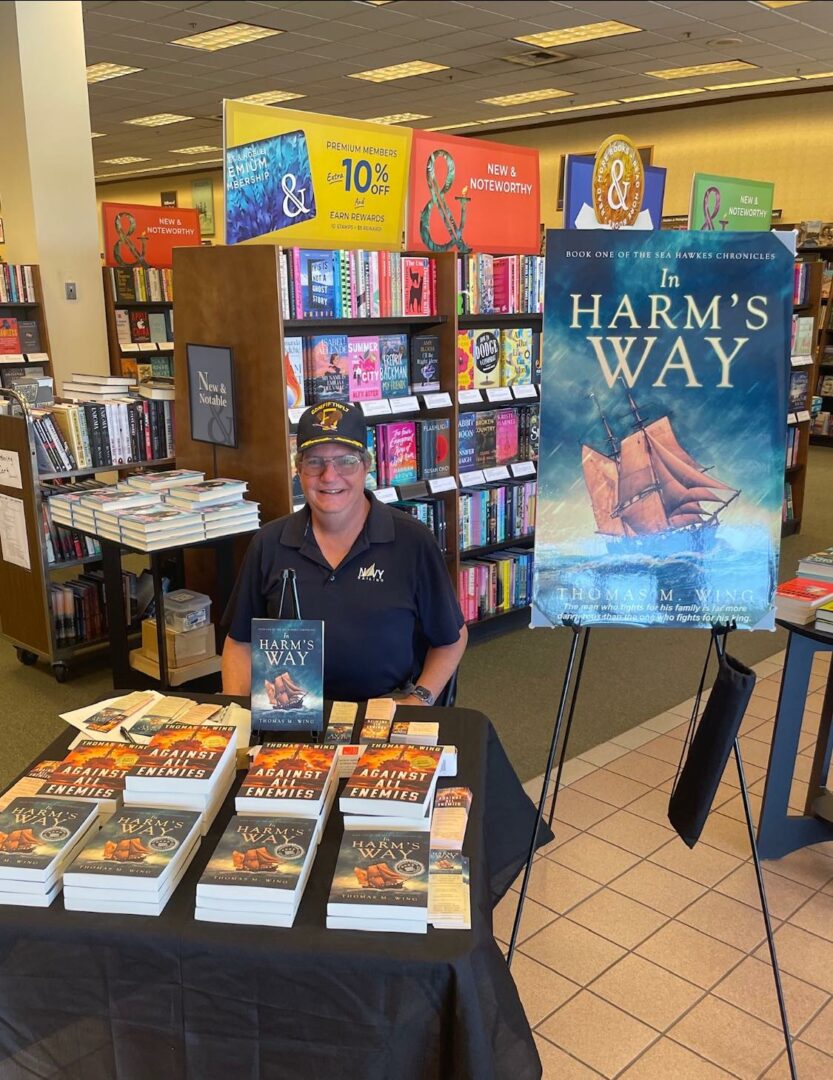We were lucky to catch up with Thomas (Tom) M. Wing recently and have shared our conversation below.
Thomas (Tom) M., first a big thank you for taking the time to share your thoughts and insights with us today. I’m sure many of our readers will benefit from your wisdom, and one of the areas where we think your insight might be most helpful is related to imposter syndrome. Imposter syndrome is holding so many people back from reaching their true and highest potential and so we’d love to hear about your journey and how you overcame imposter syndrome.
If I’m honest, I’m still working on this one.
However, there are tactics and techniques that have helped me a great deal.
First, one must acknowledge that there is a difference between imposter syndrome, and legitimate realization that you still have much to learn. The latter is overcome by a willingness to take workshops, classes, and solicit feedback from trustworthy sources. The latter is nurtured by folks who provide feedback gently and constructively.
Imposter Syndrome (IS) is that little voice that tells you that not only do you not yet know enough, you will never know enough, and never be good enough. It’s the voice that says the folks who’ve reviewed your work, or given you feedback, or generally compliment you, are either lying or don’t know what they’re talking about.
The best way I’m able to overcome imposter syndrome is by reading. I read a great deal, in my genre, and outside it. I even read romance. I read fantasy AND science fiction, mystery, thriller, and what used to be called “chick lit,” that is, women’s fiction. Because I’ve been reading fiction for nearly sixty years, I can quickly tell what is “good writing” and what is not. Now that I have some education and experience writing behind me, I can also point to specifics of WHY something is good or, well, not good. Have I put down books that were poorly written? Yes, I have. But if it’s not too horrid, or hard to read, I’ll sometimes struggle through it, and figure out how I might have done it differently. That helps me realize that while I still have much to learn, and will be a better writer tomorrow than I am today, that I’m also a fairly decent one. (See, I couldn’t bring myself to say a “good” writer! It remains a struggle!)
Another way I can at least dull my IS is by reading my own work. I don’t go back and reread my published novels. But I do read my own work in progress. First, it helps me be consistent with respect to voice, character dialogue, even names and places. Second, it reminds me that what I’m working on is a good story that desires to be told. And, when I come across a particularly well written portion, I allow myself to sit back and say “wow, that’s pretty darned good.”
Finally, people will pleasantly surprise you, and you should let yourself listen to them. I read my reviews, good and bad. For the bad ones, my internal response is, “well, you bought the book, so there’s that.” And I let them go. There is NOTHING good will come from stewing over a bad review. Just acknowledge that they aren’t your audience, and move on. For the good reviews, I let myself enjoy the moment. The reviews I’m proudest of for Against All Enemies are the ones written by Navy sailors who say things like “I could smell the stale coffee and cigarette smoke as I read it.” I’m also pleased as punch (thanks for that phrase, Dad!) when someone unexpectedly puts my new book at the top of their summer reading list in an online magazine that goes out to hundreds of people. Or when someone stops at my table during a book signing and tells me and those standing around that they loved my story. Enjoy the moment, and then, like with bad reviews, move on.
My best advice it to realize that voice won’t go away, but you do NOT have to listen to it, or acknowledge it. If you’re happy with who you are and where you are in life, even if you are on a journey to improve yourself, that’s what’s important.
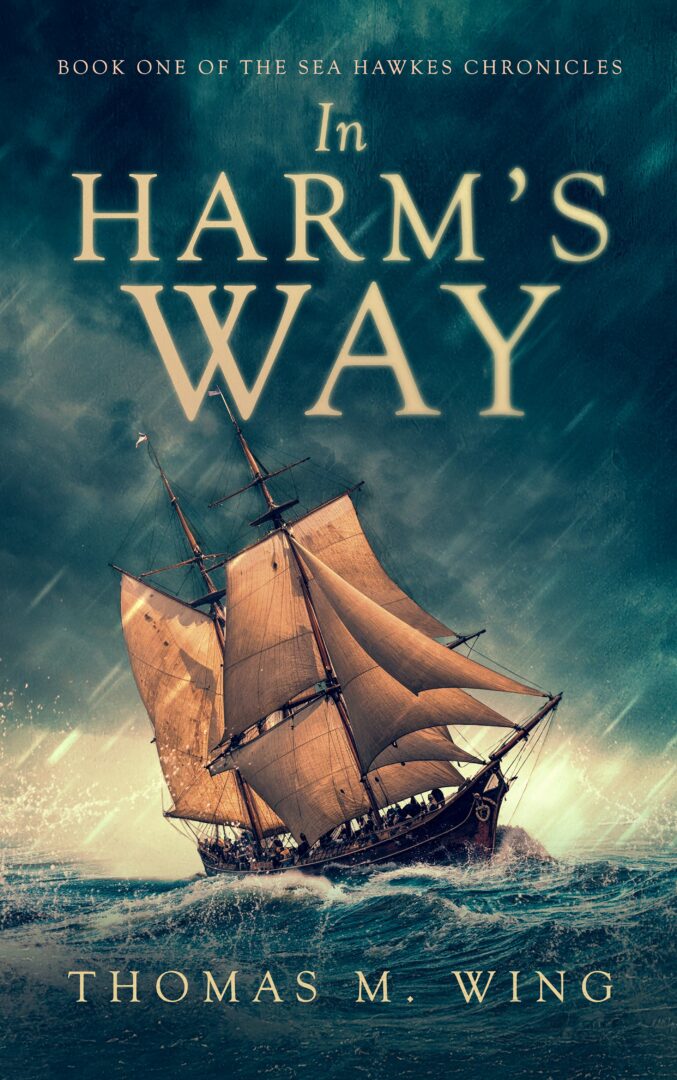
Let’s take a small detour – maybe you can share a bit about yourself before we dive back into some of the other questions we had for you?
I’m a writer. I’m also a sailor, for more than fifty years. The writer part is new, only the past forty-five years or so….. I’ve been a lot of other things along the way, most related to the sea, but these two words define me. Right now, I’m focused on family (daughter in college and my wife), and my writing.
I have two books out, both published by Acorn Publishing. The first is a modern military tale about a trade war with China that goes hot when China attacks the US, leaving a destroyer alone and unafraid in the South China Sea.
The second book, recently released, is set during the American Revolution. When the Royal Navy takes everything from a colonial sea captain, he must find a way to support and defend his family amidst the growing chaos of rebellion. This one is the first in a trilogy that follows my sea captain and his son throughout the war. I’m writing the sequel as we speak. It’s due to the editor on 1 November. Then I’ll start writing the final book in the trilogy. After that?
Well, I have a story burning a hole in my head that’s very loosely based on my father’s and two uncle’s service in World War II.
Seems like I can’t settle on a single time period, or even genre. But there are ties between all these stories. One is the timeless sea, and it’s being the site of so much of human struggle. The second is my own demand that my fiction be both authentic and accurate. By authentic, I mean that the settings are correct. If I’m writing a scene in the CIC of a modern destroyer, the orders being passed to engage enemy targets are correct (within the limits of the Department of Defense’s classification reviews), the weapon systems behave correctly, and they sometimes don’t work. That’s real life. People sometimes don’t measure up, and I want to capture that, too.
By accurate, I mean that historical events are portrayed as they happened, in the times they happened. Even though my characters are fictional, and the tale is made up, I place my characters in real events, and let them react as they should, as real people who experienced those events did. I never want a reader to be mislead by my portrayal of a historical event, and learn history incorrectly. At the same time, I want the reader to be immersed in the event, and feel it for themselves, as if they were there. That means they will have reactions of their own, and come away with a deeper understanding of the event. I guess authenticity and accuracy are my “brand.”
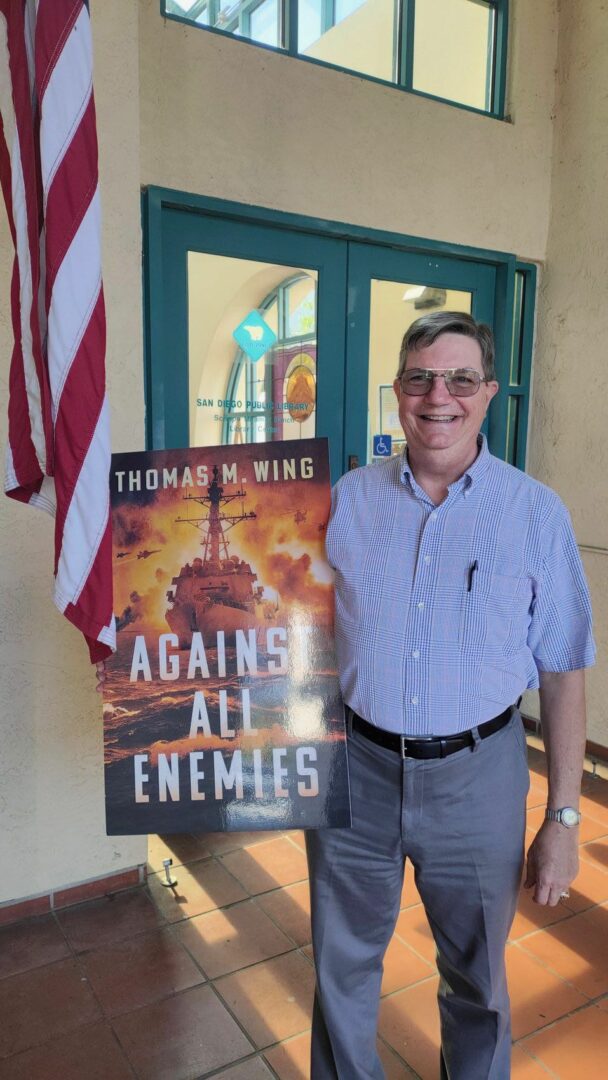
There is so much advice out there about all the different skills and qualities folks need to develop in order to succeed in today’s highly competitive environment and often it can feel overwhelming. So, if we had to break it down to just the three that matter most, which three skills or qualities would you focus on?
Difficult question.
Be willing to share your work with someone you trust to give you constructive feedback. I did not until I was much older, and should have been farther along my writer journey. Listen to that feedback, and filter it. Use what makes sense, and you really have to think about this bit, consider it. Discard what doesn’t. In the end, your writing is yours.
Read. Not just in your genre, though that’s the most important. You need to recognize good writing, in others and in yourself. And your story must meet the expectations for readers in your genre. Science fiction requires good scientific justification for how things work in your world. Doesn’t have to be scientifically accurate, but it has to be plausible. A mystery requires a crime.
Take classes and workshops. I don’t follow all the “if you use this checklist, your story will be great and attract an agent” rules and worksheets. I use what works for me, and consider the rest before discarding. Actually, I keep it, because I don’t know if it’ll be useful in the future. But you can always learn something from a class or workshop, even if it’s just what won’t work for you.
Don’t wait until you’re retired! Keep writing. Perseverance is probably the number one quality a writer must have.
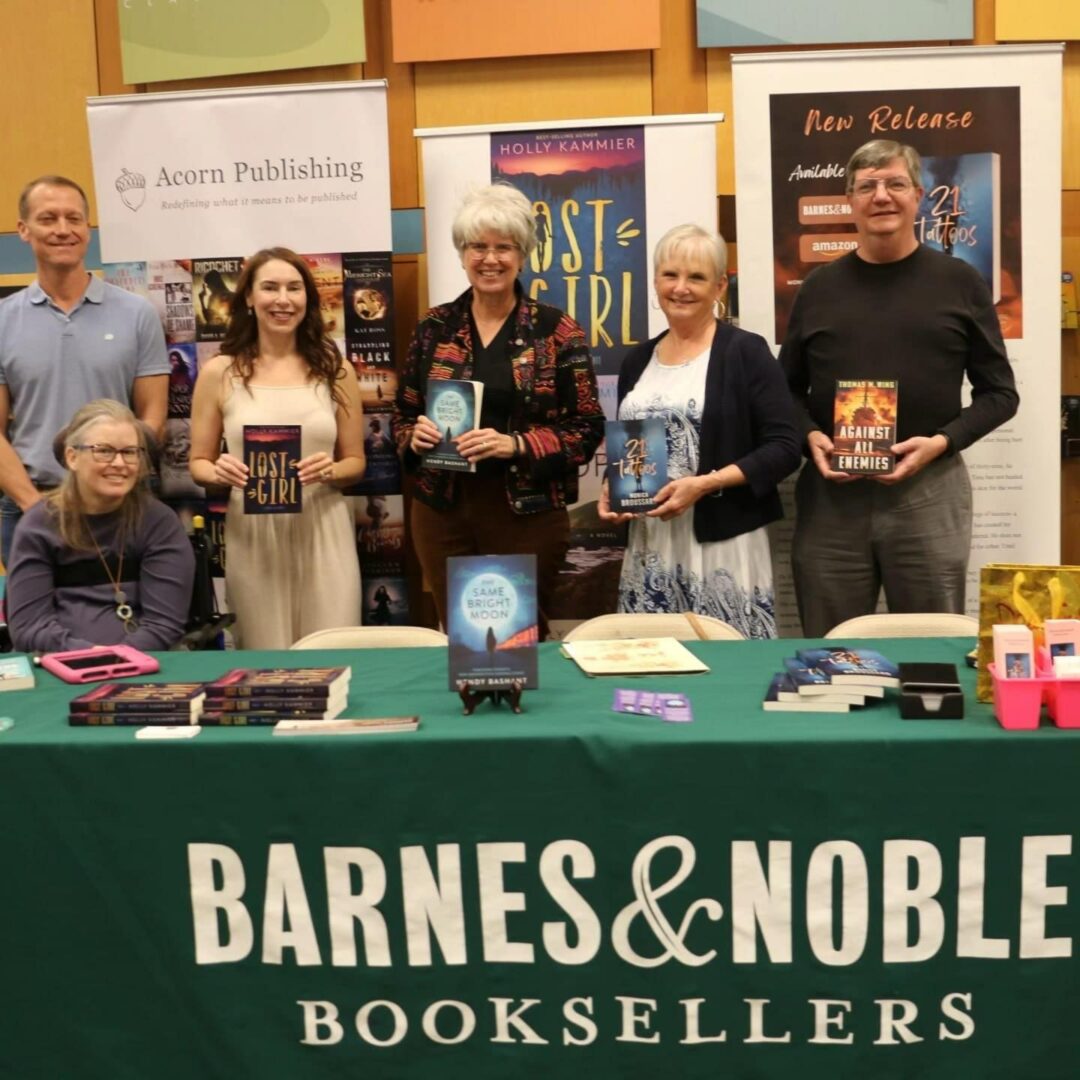
What was the most impactful thing your parents did for you?
They encouraged me. They never told me I couldn’t do something. Well, other than play high school football. And that actually was the doctor who told them I shouldn’t. But I digress. They always told me I could be or do anything if I was willing to work for it. Where I grew up, there were barriers for anyone who wanted more than what that little town or little county provided. My parents taught me to ignore those folks, and go for it. I did, and I’m ever grateful to them for it.
Contact Info:
- Website: https://www.thomasmwing.com
- Instagram: https://www.instagram.com/thomas.m.wing.writer/
- Facebook: https://www.facebook.com/ThomasMWingWriter/
- Linkedin: https://www.linkedin.com/in/thomasmwingwriter/
- Twitter: https://twitter.com/ThomasMWing1
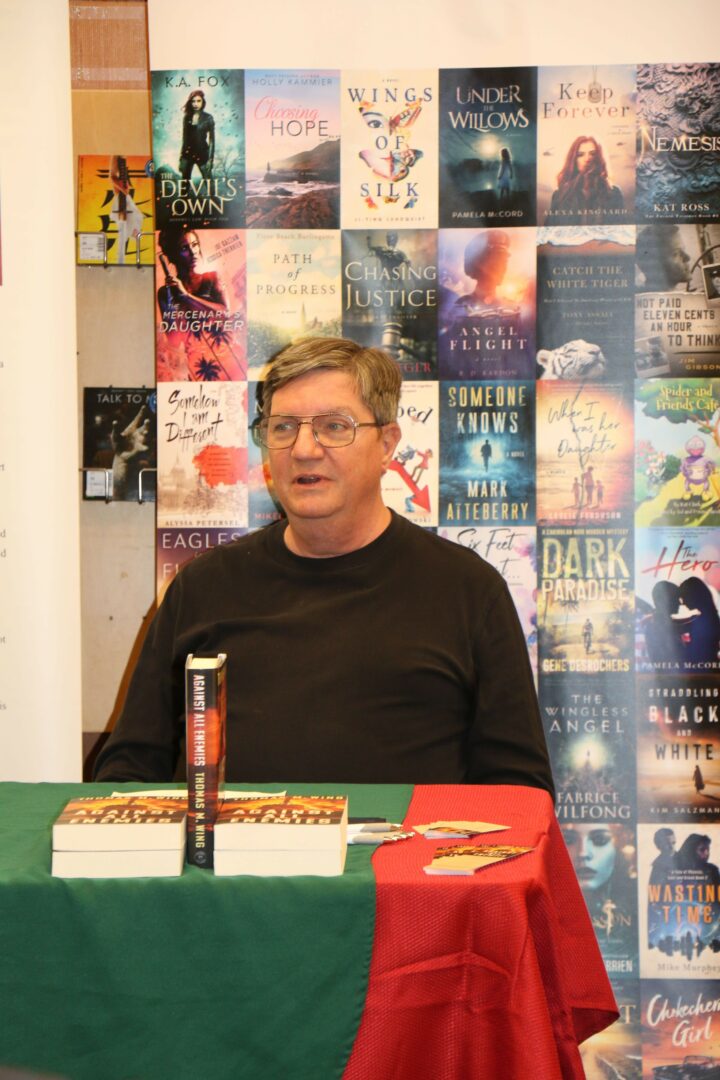
Image Credits
Holly Kammeir, Michelle Sund, Carmel Valley News
so if you or someone you know deserves recognition please let us know here.

